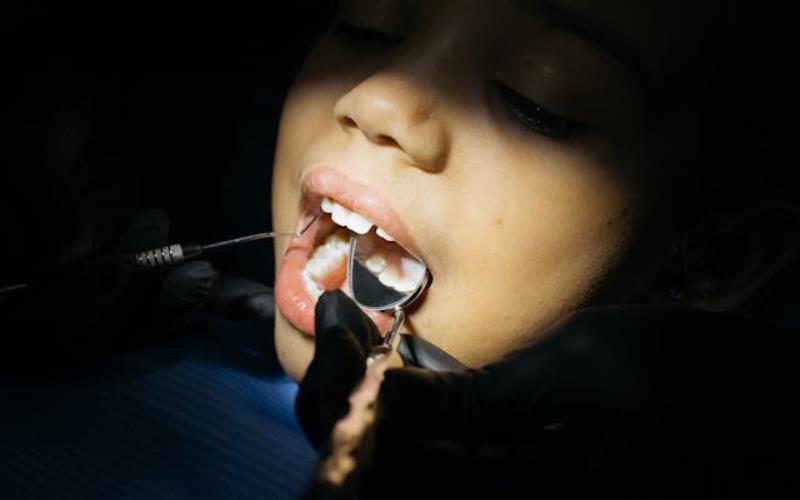Bleeding Gums? Here’s What You Might Need
Though it’s a typical problem many individuals have at some time, bleeding gums might be alarming. Many times, it serves as an early warning indicator of gum disease or some underlying medical illness. Knowing what you can do about bleeding gums and their causes can help you avoid further problems and have a good smile. Should you see bleeding in your gums, here is some information you could find useful.
Understand the Causes of Bleeding Gums
Bleeding gums may be caused by many elements, so it’s important to find the main one. Insufficient oral hygiene is one of the most regularly occurring causes of bleeding gums. As plaque builds up along the gum line, it irritates the gums and causes bleeding. Often, the initial phase of gum disease is a condition called Gingivitis. Gums could also bleed from other causes.
These include using a toothbrush with harsh bristles, brushing too vigorously, or maybe hormonal changes seen during pregnancy. Medical illnesses, including diabetes, vitamin shortages, and blood abnormalities, may potentially aggravate this issue. Effective therapy depends on the main cause being found with the aid of a dentist or other healthcare professional.
Improve Your Oral Hygiene Routine
If your bleeding gums result from inadequate dental cleanliness, changing your oral care routine will have a big impact. Keeping excellent teeth and gums largely rely on frequent flossing and twice daily brushing. Brushing gently can help to prevent the worsening of already existing irritation. Try a soft-bristled toothbrush and steer clear of forceful motions.
Brushing at a 45-degree angle to your gums can assist in efficiently eliminating plaque without damaging anything. As it helps remove food particles and plaque from areas your toothbrush cannot reach, daily flossing is equally vital. Take great care while you floss to prevent damage to your gums. Including mouthwash in your regimen may also help lower germs and plaque, therefore shielding your gums from irritation and bleeding even more.
Pay Attention to Your Diet
General health, including gum conditions, depends on a balanced diet. Gum health is greatly enhanced by several vitamins, particularly vitamin C and vitamin K. While vitamin K shortage can impact the clotting of blood and therefore increase bleeding likelihood, vitamin C insufficiency can cause gum irritation and bleeding. Including fruits and vegetables high in these vitamins, such as oranges, broccoli, and leafy greens, helps maintain your gum health.
Steer clear of processed carbs and too much sugar, as these foods aggravate gum disease and help to produce plaque. Eating crunchy fruits and vegetables like apples and carrots, drinking plenty of water, and encouraging saliva generation which naturally reduces germs can also help maintain clean gums.
Recognize the Symptoms of Gum Disease
Early warning of gum disease might include bleeding gums. Red, puffy, readily bleeding gums define the first stage, Gingivitis. Untreated Gingivitis may turn into periodontitis, a more severe form of gum disease that can affect the tissue and bone supporting your teeth.
Gum recession, loose teeth, and ongoing poor breath are other gum disease signs. You should consult a dentist right at once if you experience any of these symptoms. Early detection helps you avoid more involved treatments and helps gum disease not worsen.
Consider Lifestyle Changes
Many lifestyle habits might affect the state of your gum. One important risk factor for gum disease, for instance, is smoking, which also may cause bleeding gums. Smoking weakens the immune system, which increases the body’s difficulty fighting off infection and recovering from dental treatment. Your gum condition may be much improved by either cutting down on or stopping smoking.
Furthermore, influencing gum conditions might be stressful.Long-term stress weakens your immune system and produces inflammation everywhere including your gums. By means of exercise, meditation, or deep breathing, among other stress-relieving activities, you may control stress levels and safeguard your gums.
Conclusion
More than simply a little irritation, bleeding gums might indicate underlying gum disease or another medical condition. Understanding the possible reasons, enhancing your dental hygiene, keeping a good diet, adjusting your lifestyle, and seeing your dentist often can help you take charge of your gum condition and lower bleeding. Early treatment may help avoid major issues, therefore enabling you to have a healthy, pain-free smile for many years to come.


